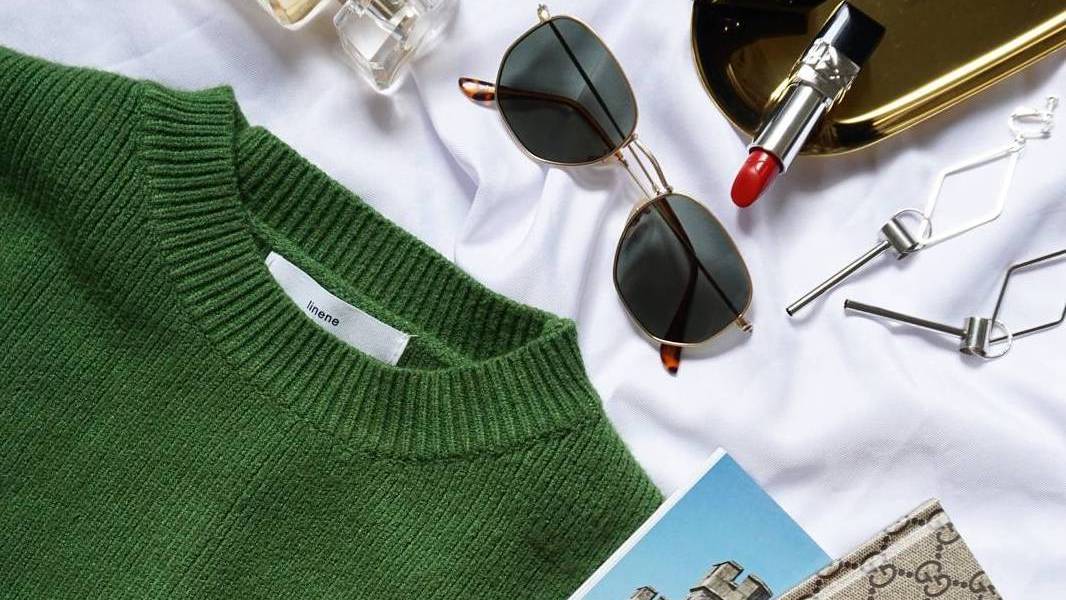It’s time for the big interview. You’re about to head out the door but you double-check your purse to make sure you have the essentials. A résumé, a pen, and paper—what else could you possibly need? A lot more, actually. While you don’t want to look weighed down by all the things you’ve brought along with you, it’s important to pack a small, organized interview kit with you to be prepared for anything that could happen. After all, you’re here to impress a potential employer—so don’t you want to show them that you’re able to plan ahead? To help you plan, we asked College Fashionista community members to reveal the necessities that they bring along to every interview. Ready to get the job? Bookmark the checklist below to make sure you’re ready for anything the next time you show up to land that dream internship.
- A touch-up kit: Before you go in, you will probably check a mirror to make sure there is nothing stuck in your teeth and that your hair doesn’t have any fly-aways. Náosha Gregg, a senior at CUNY Kingsborough, says, “always keep a brush and a comb, in case [your] hair starts to come out of place.” You never know when humidity or wind will strike, so you need to be prepared.
- Deodorant: Josie Danardatu, a junior at Kent State University, never leaves for an interview without deodorant—because stress sweat is very, very real. She says, “I prefer the gel deodorant because I feel like my skin absorbs it better and it also never leaves any of those embarrassing white deodorant stains on any of my interview clothes.” Opt for a travel size version for easy storage and transportation, and make sure to apply it a few minutes before your interview as a last minute touch-up.
- A notebook and pen: Don’t forget to grab some paper and something to write before you head to your interview. Lexa Krajewski is a junior at Boston University and she suggests packing “a notebook and pen so that [you] can write down any important details about the position.” The ability to jot down notes in the moment is beneficial. Sometimes the interview process is so adrenaline-filled that it’s easy to forget what you discussed, so you will thank yourself later for noting the particulars.
- A portfolio: A portfolio of your work will support your resume and the skills you’ve developed. Náosha Gregg makes sure to keep examples of her articles so that she can show interviewers her experience. Portfolios can take many different forms, whether it be digital, art-focused, or a collection of written pieces, and they add credibility to your application and interview performance. Aneatrice Wornum, a junior at Georgia Southern University, keeps a binder of her work. She says, “I recommend bringing a portfolio or samples of your work to validate your skills and the work you’ve done. It gives the interviewer a visual reference so they can see your talents.” Kate Day, on the other hand, puts her portfolio in a decorative file folder. This Loyola University sophomore keeps hard copies of CF articles, blog posts and relevant class papers. Kate says, “at the front of the folder I leave a note with exactly what is inside in case a potential employer wants to keep my writing samples to review.” This adds important clarification and context for the reader whether they’re reading it in the moment or weeks later.
- Several copies of your résumé: Margo Ghertner, a sophomore at Boston University, carries multiple copies of her resume when attending an interview. She says, “I always bring an extra copy of my résumé just in case anyone needs it or I meet someone else in the office, just as a networking technique. You never know where that résumé could go that might push you over the edge!”
- Business cards: It’s a good idea to make personal business cards, which are ideal for quick networking opportunities. Tyshaia Earnest, a sophomore at Kent State University, recommends putting contact information along with your website and LinkedIn handle on business cards. She says, “I feel like it will leave a lasting impression and it’s something [professionals] can keep with them, like in their wallet, so they can remember me.” Not sure how creative to get with them? According to Business Insider, it’s important to make your business card unique to differentiate yourself. Try looking at templates online or through Pinterest for some inspiration.
- Questions: Research, research, research. Bring your knowledge into the interview so that you are prepared to have an educated discussion with the interviewer. Taryn Hoffman, a junior at North Carolina State University, recommends “bring[ing] great, informed questions to ask the interviewer at the end of the interview.” She develops her questions with information she knows about the company and current events affecting the industry.
Knocked your interview out of the park? Of course you did. Now here’s what to do after it’s over to secure the job of your dreams.
Feature photo by @kindakaili.

